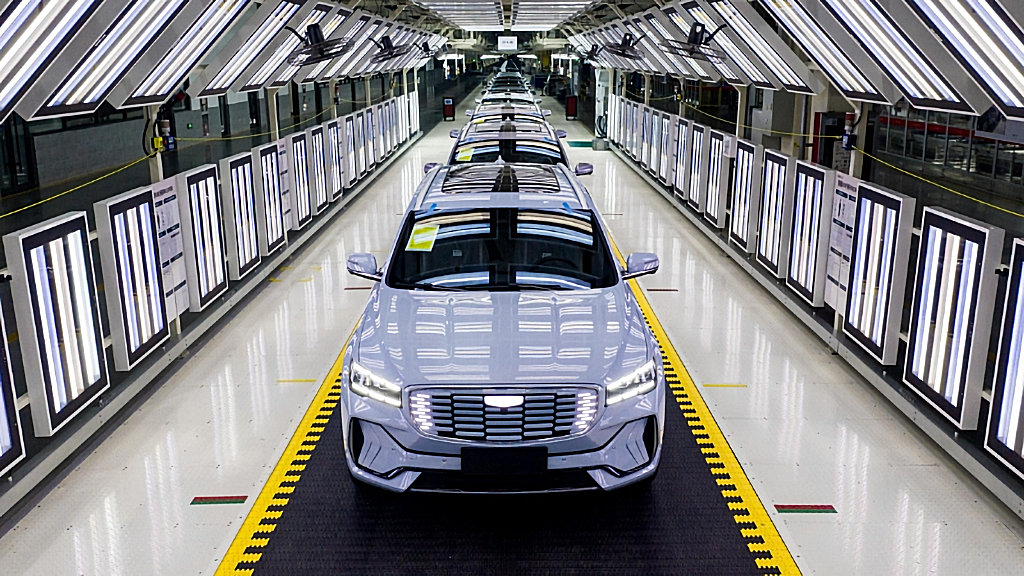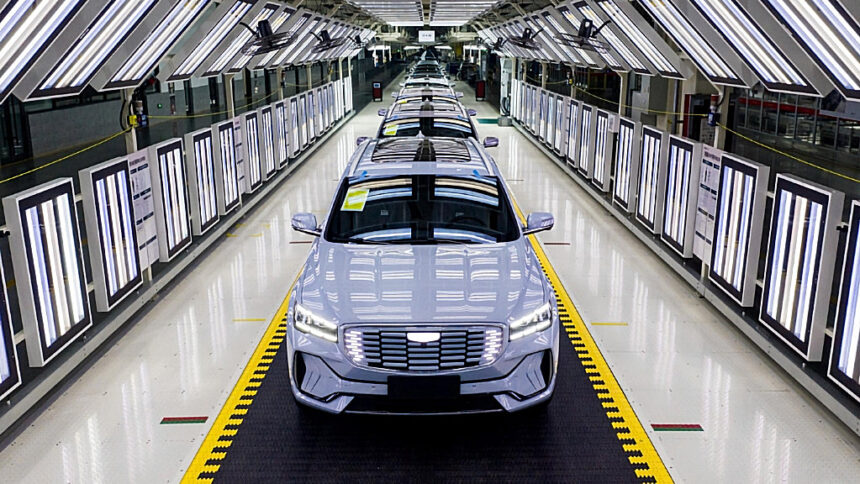The US government has proposed a new rule aimed at banning the sale and import of smart vehicles using specific Chinese and Russian technology, citing national security concerns. This proposed ban is part of a broader effort to safeguard critical infrastructure from potential cyber threats that could exploit vulnerabilities in smart car systems. The ban would affect vehicle models starting in 2027 for software and 2030 for hardware, highlighting the growing tension between the US and foreign powers, particularly China and Russia, over control of key technologies.
What’s Happening & Why This Matters
National Security Concerns and the Proposed Ban
The US Commerce Department announced the proposed ban after a months-long investigation revealed serious security risks associated with embedded software and hardware from China and Russia in US smart vehicles. Commerce Secretary Gina Raimondo pointed out that, in a worst-case scenario, foreign adversaries could use this technology to remotely sabotage vehicles in the US, causing crashes, blocking roads, and even gaining access to sensitive personal data.
The rule targets “connected vehicles”—a broad category that includes any modern vehicle using network technology for features like roadside assistance or satellite communication. The ban focuses on hardware and software that enable these vehicles to connect with the outside world via Bluetooth, WiFi, and cellular networks. US officials are particularly concerned about electric charging stations and other critical infrastructure outfitted with vulnerable tech from foreign companies.

While the ban would not impact vehicles already on US roads, it aims to protect future models starting in 2027 for software and 2030 for hardware. Automakers and consumers alike are expected to feel the impact of this regulation, as it may affect the cost and availability of certain vehicle models.
Broader US-China Tech Tensions
This regulatory action reflects a larger struggle between the US and China to control the future of high-tech industries. Both nations are racing to secure supply chains in areas like artificial intelligence and semiconductors, and China’s investments in the global car market have raised alarms for US officials. Chinese companies have made significant progress in Europe, and US leaders are wary of the potential consequences.

The Chinese government has expressed its own concerns, particularly over Tesla vehicles, citing the data collection capabilities of smart cars as a security risk. Some Chinese authorities have even barred Tesla cars from entering sensitive areas due to the potential for data collection.
The Costs and Implications
The proposed rule will undergo a 30-day public comment period before a final version is released, with the Commerce Department aiming to finalize the regulations before the end of the Biden administration. An economic analysis will also be released, detailing the expected costs for automakers and consumers to comply with the new rule.
Gina Raimondo emphasized that this move is purely about national security, rejecting claims from critics that it serves a protectionist agenda. “This is not about trade or economic advantage,” she said. The rule is focused on preventing the collection of sensitive data that could leave Americans vulnerable, such as information on drivers’ home addresses, schools their children attend, or their doctors’ offices.

The White House’s national security adviser, Jake Sullivan, underscored the dangers, noting that Chinese hackers have previously been accused of pre-positioning malware in US infrastructure for sabotage. “The risk of disruption and sabotage increases dramatically” if millions of cars with vulnerable tech are operating on US roads, he warned.
Chinese Response
China has denied the US allegations, with a spokesperson for China’s Foreign Ministry calling the proposed ban discriminatory. “We urge the US to respect market principles and provide an open, fair, transparent, and non-discriminatory business environment for Chinese enterprises,” said Lin Jian, a ministry spokesman.
TF Summary: What’s Next?
As the US debates the proposed ban on vehicles containing Chinese and Russian technology, TF foresees the impact on the auto industry as significant. Automakers may need to overhaul supply chains to ensure compliance while consumers could face higher costs for new smart vehicles. Meanwhile, tensions between the US and China over control of key technologies will intensify — with both nations vying for global market dominance.


